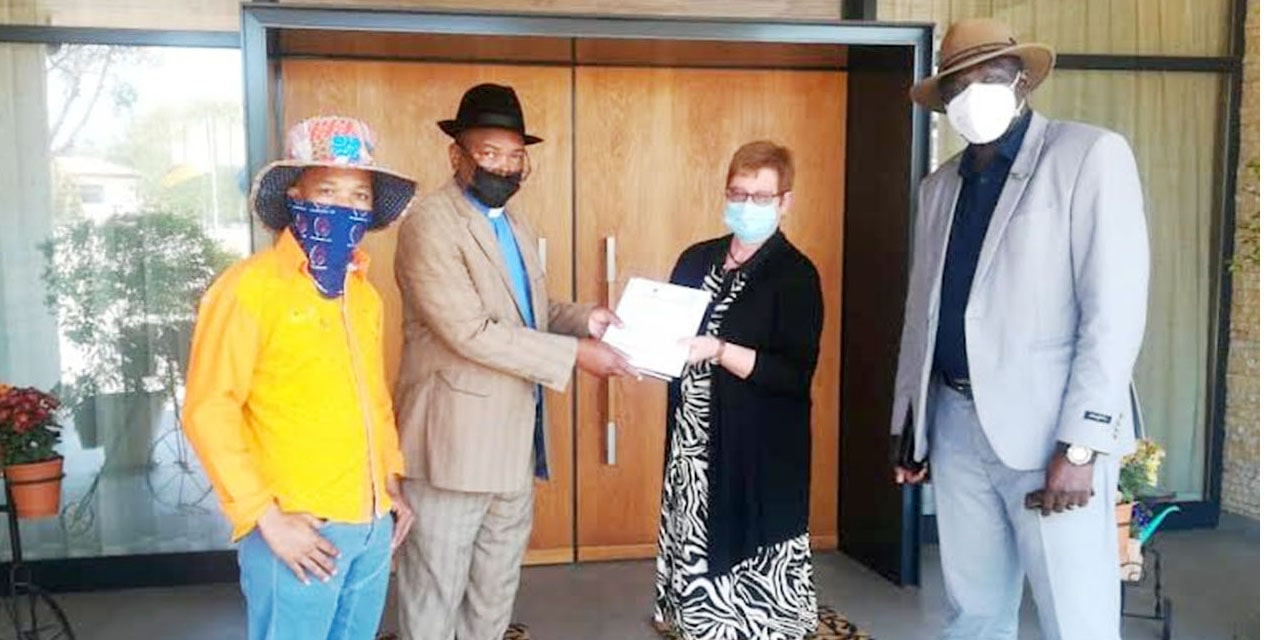Staff Writer
The Botswana Society of Nama, Ovaherero and Ovambanderu (BOSNOO) is pleading with the governments of the Republic of Namibia and the Federal Republic of Germany to recognise the presence in the diaspora of Nama, Ovaherero and Ovambanderu as a direct consequence of the 1904-1908 genocide against these communities in Namibia, then German South West Africa.
BOSNOO is among organisations of genocide descendants from both Botswana and Namibia who last month virtually testified before an eminent panel of the International Covenant on Civil and Political Rights (ICCPR) on the question of participations rights under Article 25 of the ICCPR.
It further testified that the descendants of genocide in Namibia but Botswana citizens, reserve the right to full and direct participation in the negotiations Genocide, Apology and Reparations, which have been ongoing between the Namibian government and its German counterpart “as equal interested parties in accordance to the International Convention on Civil and Political Rights (ICCPR), the International Convention on the Elimination of Racial Discrimination (ICERD), and the UN Declaration on the Rights of Indigenous Peoples (UNDRIP), and other instruments that Germany has ratified and is a signatory to.”
It thus testified that the current negotiations be halted immediately and fresh ones be started with the full participation of all concerned parties.
Also that the matter be approached from a trans-national view as opposed it being dealt with under the ambit of a bilateral matter between these two governments, Namibia and Germany only. Due to Namibian sovereignty as a country,
and that of her other establishment not duly authorised by them precluding them from representing themselves or claiming to represent them in this or any other incidental matter, the Namibian government thus lacks the locus standi to represent and speak on their behalf as Botswana citizens, though descendants of genocide, in the matter of genocide.
“We are better positioned to tell our stories ourselves in Botswana in order to address the challenges we continue to endure to date as a direct result of the impact of the Genocide,” the testimony reads further.
Contrary to the recent claims by a member of the Namibian National Assembly, Dr Itah Kanjii-Murangi about their involvement, they unequivocally stated that they have not been consulted, nor have they participated, nor were they ever a party to the about to be concluded inter-state negotiations between Namibia and Germany.
“In addition to the historical context it is imperative to note that; in furtherance of their brutality and quest to totally annihilate all the victim communities, the German Imperial forces went as far as pursuing those fleeing to refuge, as demonstrated by the very well documented case of the Nama of Captain Simon Cooper, whose people were pursued, killed and captured in the Kgalagadi Transfrontier Park which then and now lies on the Botswana side of the colonially drawn boundaries,” BOSNOO testifies.
BOSNOO admits to once dispatching a special delegation to implore the Namibian government of the need for their involvement and participation as the negotiations unfolded buts “however the reality of this and many other such efforts we exhausted were all in vain, as evident in the lack of mention of those descendants domiciled in Botswana in this so called ‘Reconciliation and Reconstruction Agreement’”.
This testimony by BOSNOO and that of Namibians, is understandably featuring prominently before the United Nations Human Rights Committee tomorrow, where after it is expected to issue a public statement.




